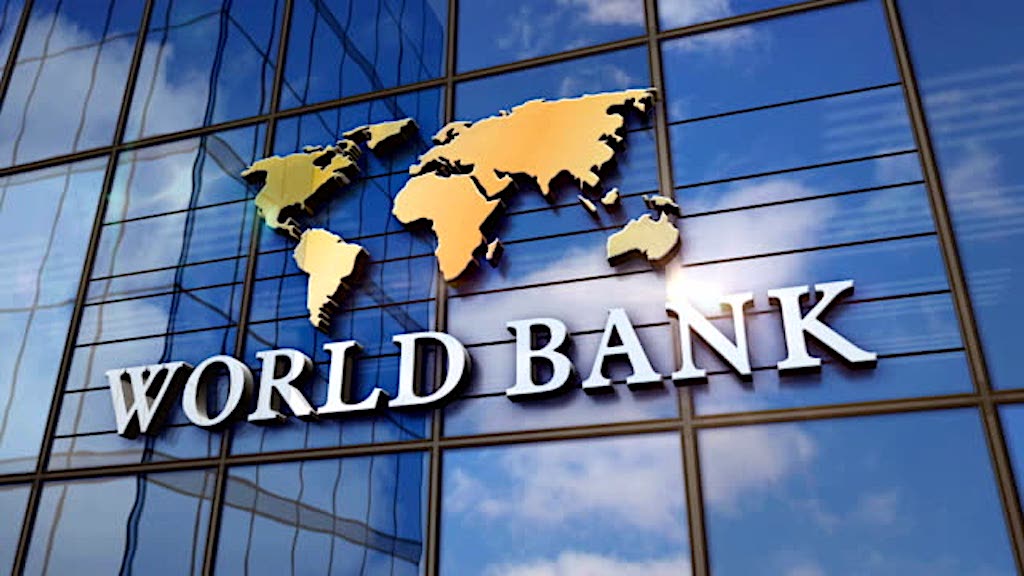THE Presidency has strongly disputed the latest World Bank report estimating that 139 million Nigerians are living in poverty, describing the figure as “unrealistic, misleading, and detached from Nigeria’s current economic realities.”
News Point Nigeria reports that reacting to the report on Wednesday, President Bola Tinubu’s Special Adviser on Media and Public Communication, Sunday Dare, said the figures must be “properly contextualised” within the framework of global poverty measurement models, warning against what he termed a “misreading of analytical constructs as real-time headcounts.”
“While Nigeria values its partnership with the World Bank and appreciates its analytical work, the figure quoted must be properly contextualised. It is unrealistic,” Dare wrote on his official X handle.
According to the Presidency, the World Bank’s figure is based on the global poverty line of $2.15 per person per day, set in 2017 using Purchasing Power Parity (PPP), which does not reflect current local realities.
“When converted nominally, that figure equals about ₦100,000 per month at today’s exchange rate, well above Nigeria’s new minimum wage of ₦70,000,” the statement read.
It explained that the PPP-based poverty metric relies on historical consumption data, Nigeria’s last major survey being from 2018/19 and often ignores the vast informal and subsistence economies that sustain millions of Nigerians.
“The government, therefore, regards the figure as a modelled global estimate, not an empirical representation of conditions in 2025. What truly matters is the trajectory, and Nigeria’s is now one of recovery and inclusive reform,” the statement added.
The Presidency highlighted several initiatives aimed at cushioning the impact of reforms and driving inclusive growth, including:
Conditional Cash Transfers: Expanded to reach 15 million households with verified digital enrolment through the National Social Register. Over ₦297 billion has been disbursed since 2023.
Renewed Hope Ward Development Programme: Targeting all 8,809 wards to deliver micro-infrastructure, livelihoods, and social services.
National Social Investment Programmes (NSIP): Enhanced components like N-Power, GEEP micro-loans (TraderMoni, MarketMoni, FarmerMoni), and Home-Grown School Feeding to protect jobs and small businesses.
Food Security Initiatives: Subsidised grains, fertiliser distribution, and revived food reserves to curb inflation.
Renewed Hope Infrastructure Fund: Financing key road, housing, and energy projects to reduce living costs.
National Credit Guarantee Company: Expanding affordable credit to small businesses, women, and youth entrepreneurs.
The government reaffirmed that the Tinubu administration is addressing poverty at its roots by fixing long-standing structural issues.
“Fuel subsidy removal, exchange rate unification, and fiscal reallocation to productive sectors are painful but necessary choices to correct distortions that have constrained inclusive growth for decades,” Dare stated.
He added that even the World Bank itself had acknowledged that the reforms were restoring macroeconomic stability and growth momentum, citing remarks by World Bank officials recognising positive early results from the government’s reform agenda.
The Presidency emphasised that macroeconomic stability must translate into improved welfare for ordinary Nigerians.
It said the government’s medium-term priority is ensuring that reform gains result in affordable food, quality jobs, and reliable infrastructure, with strategic investments ongoing in agriculture, manufacturing, and power, including new gas-to-power projects and industrial skill hubs.
“Nigerians should begin to feel more visible improvements in food prices, income, and purchasing power as these programmes mature,” the statement said.
It also disclosed plans to integrate all welfare initiatives under a unified, data-driven social protection system, ensuring transparency and inclusion across all vulnerable communities.
Earlier on Wednesday, the World Bank Country Director for Nigeria, Mathew Verghis, while presenting the October 2025 Nigeria Development Update titled “From Policy to People: Bringing the Reform Gains Home,” said despite commendable macroeconomic stabilisation, “many households are still struggling with eroded purchasing power.”
Verghis noted that poverty levels had risen steadily from 87 million in 2023 to 129 million in April 2025, and now 139 million, warning that without rapid welfare gains, the government’s reform momentum could be undermined.
“Nigeria has implemented bold reforms on fuel subsidy and the exchange rate, these are foundational steps that can transform its economic trajectory. But reforms must now move from policy to people,” he said.
While the Presidency dismissed the report, some economists, opposition leaders, and labour unions said the World Bank’s assessment reflected the growing hardship across the country.
They argued that the cost of living crisis, rising inflation, and job losses continue to erode the purchasing power of ordinary Nigerians despite government interventions.
The Presidency reaffirmed President Tinubu’s commitment to building “a resilient, inclusive, and prosperous economy” where growth translates directly into improved living standards.
“Nigeria rejects exaggerated statistical interpretations detached from local realities. The government remains focused on empowering households, expanding opportunity, and laying the foundation for a fairer, more prosperous nation,” it said.







